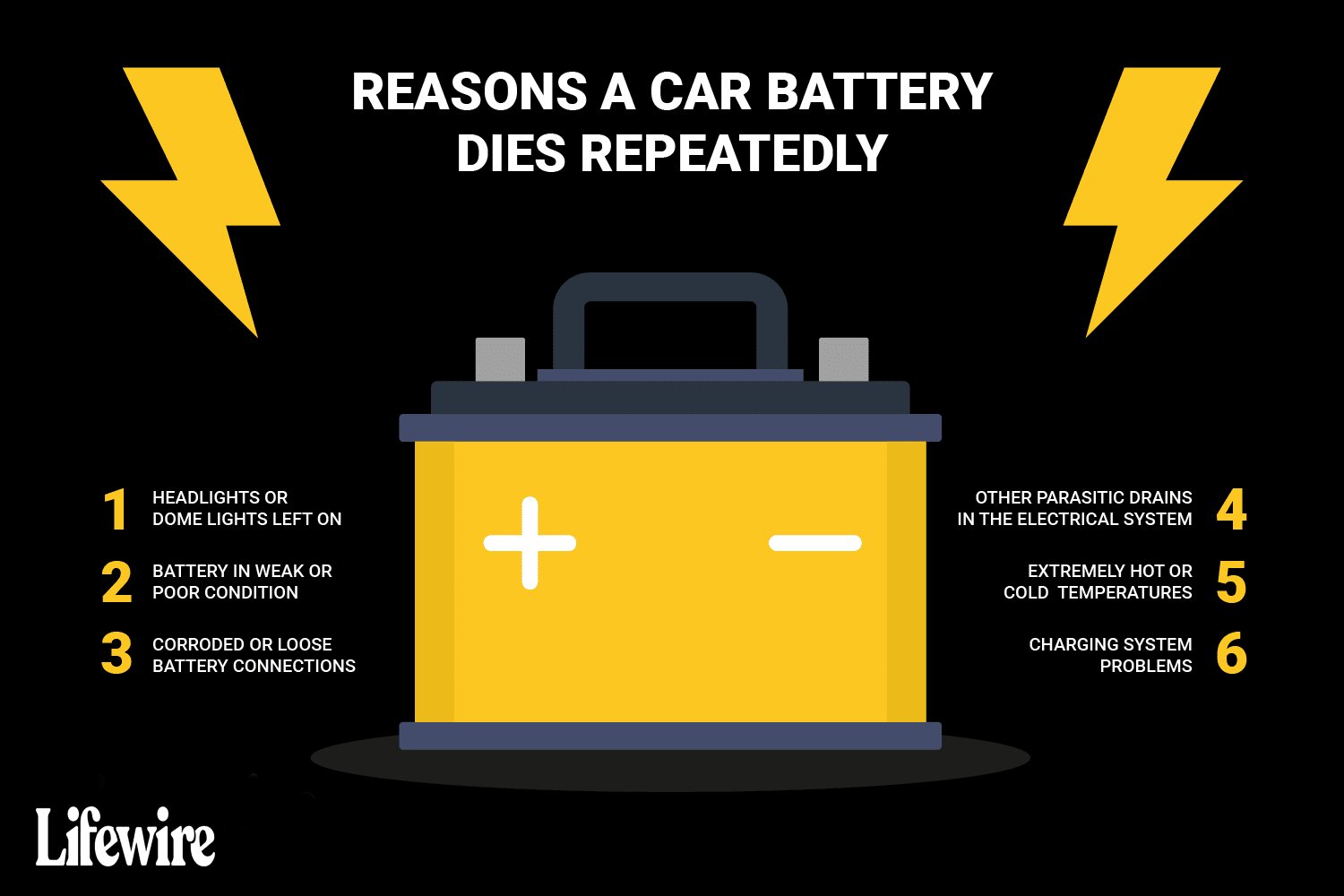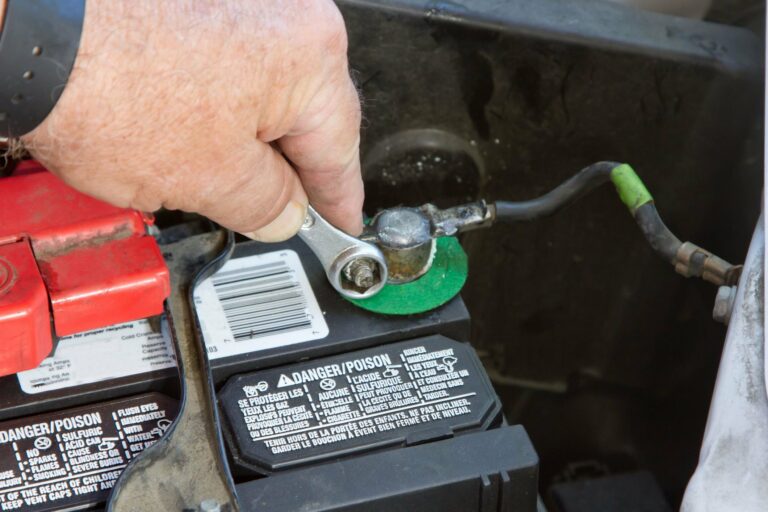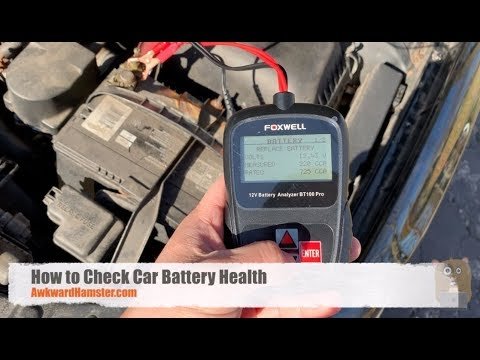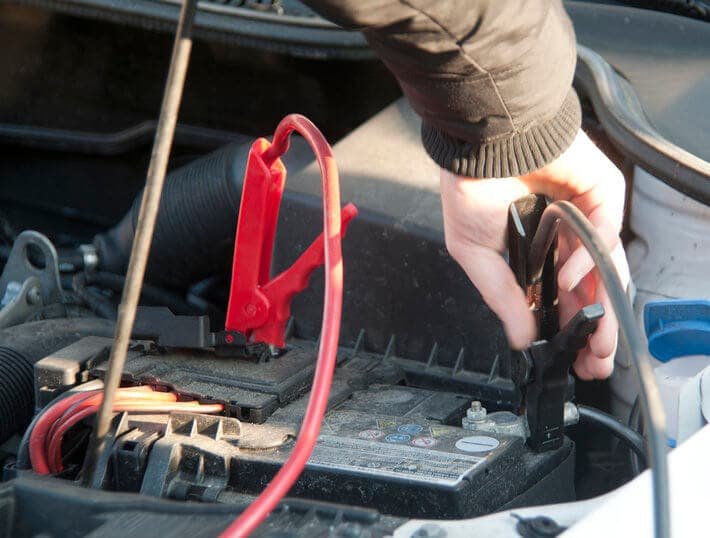How to Prevent Car Battery from Losing Charge?
How to Prevent Car Battery from Losing Charge? Fret not, because we have the solution for you! In this article, we will discuss how to prevent car battery from losing charge. We all know the frustration of having a dead battery, especially at the most inconvenient times. But fear not, with a few simple steps, you can ensure that your car battery stays charged and ready to go whenever you need it. So, let’s dive in and discover the best practices to keep your car battery from losing charge.
How to Prevent Car Battery from Losing Charge?
1. Keep Your Battery Clean
One of the first steps in preventing your car battery from losing charge is to keep it clean. Over time, dirt and debris can accumulate on the battery terminals, hindering its performance. To clean the battery, follow these steps:
- Start by disconnecting the battery cables, beginning with the negative cable (black). Remember to always disconnect the negative cable first and reconnect it last.
- Use a wire brush to gently scrub the battery terminals. Remove any corrosion or dirt buildup.
- After cleaning the terminals, rinse them with a mixture of baking soda and water to neutralize any remaining acid.
- Dry the terminals thoroughly before reconnecting the battery cables.
Maintaining clean battery terminals will help ensure good electrical connections and reduce the risk of power drain.
2. Inspect and Tighten Connections
Regularly inspecting and tightening the battery connections is essential for preventing power loss. Loose or corroded connections can lead to voltage drops and drain the battery. Follow these steps to inspect and tighten connections:
- Start by visually inspecting the battery cables for any signs of corrosion, fraying, or damage. Replace any damaged cables.
- Inspect the battery clamps and ensure they are securely tightened around the terminals.
- If you notice corrosion on the terminals, clean them as described above.
- Consider using a battery terminal protector spray or applying a thin layer of petroleum jelly to help prevent future corrosion.
Regularly checking and maintaining tight connections will help ensure proper electrical flow and prevent power drain.
3. Avoid Excessive Short Trips
Frequent short trips can cause the car battery to lose charge over time. When you start your vehicle, the battery powers the starter motor, ignition system, and other accessories. If the engine doesn’t run long enough to recharge the battery fully, it can cause the battery to drain gradually.
To prevent excessive battery drain:
- Combine short trips whenever possible. This allows the engine to run longer and recharge the battery.
- If you only need to run the engine for a short time, consider using a battery maintainer or trickle charger to keep the battery charged.
By minimizing short trips and ensuring adequate charging time, you can help prolong your battery’s life.
4. Turn Off Electronics When Not in Use
Leaving electronic devices running while the engine is off can drain your car battery. Many vehicles now have various electrical components, such as infotainment systems, GPS, and interior lights, which draw power from the battery even when the engine is not running.
To prevent unnecessary power drain:
- Turn off lights, radio, air conditioning, and any other electronic accessories before turning off the engine.
- Double-check that all lights are off when exiting your vehicle.
- When parked for an extended period, consider disconnecting or using a battery disconnect switch to prevent any power drain.
Taking these precautions will help conserve your battery’s charge and prevent unnecessary draining.
5. Avoid Extreme Temperatures
Extreme temperatures can have a significant impact on your car battery’s performance, causing it to lose charge more quickly. Battery fluids evaporate faster in high temperatures, while cold weather reduces the battery’s ability to produce power.
To protect your battery from extreme temperatures:
- Park your vehicle in shaded areas whenever possible, especially during hot weather.
- During cold temperatures, consider using a battery heater or insulation wrap.
- If you live in an area with extremely cold winters, you may want to invest in a battery blanket or heated battery charger.
Shielding your battery from extreme temperatures will help maintain its optimal performance and prolong its life.
6. Regularly Start and Drive Your Vehicle
Letting your car sit idle for long periods can result in battery drain. When a vehicle is not driven regularly, the battery gradually loses charge. To prevent this from happening:
- Start your vehicle and let it run for at least 10-15 minutes each week, even if you don’t plan on driving it.
- If possible, take your car for a short drive to help recharge the battery.
- Consider using a battery maintainer during extended periods of inactivity to keep the battery charged.
Regularly starting and driving your vehicle will help maintain the battery’s charge and overall health.
7. Monitor Battery Health
Keeping track of your battery’s health is crucial for preventing unexpected power loss. Consider investing in a battery tester or monitor to regularly check the condition of your car battery.
- Use a battery tester to measure the voltage and state of charge of your battery.
- Monitor the battery’s cranking amps (CCA) rating to ensure it meets the manufacturer’s recommendation for your vehicle.
- If you notice a significant drop in voltage or reduced CCA, it may be time to replace the battery.
By regularly monitoring your battery’s health, you can identify any issues early on and take the necessary steps to prevent power loss.
8. Check for Parasitic Draws
Parasitic draws occur when there is an abnormal electrical current drain in your vehicle, leading to battery discharge. Identifying and fixing these issues is crucial for preventing battery drain.
- If you notice that your battery frequently loses charge, consider conducting a parasitic draw test. This involves disconnecting certain electrical components and measuring the current draw with a multimeter.
- Consult your vehicle’s manual or a professional mechanic for guidance on how to perform a parasitic draw test specific to your car model.
- If you detect a parasitic draw, seek professional help to diagnose and resolve the issue.
By addressing parasitic draws promptly, you can prevent unnecessary battery drain and ensure your vehicle operates optimally.
9. Replace Your Battery When Necessary
Car batteries have a limited lifespan and will eventually need replacement. If you notice any of the following signs, it may be time to replace your battery:
- Difficulty starting the engine or slow cranking.
- Frequent jump-starts required.
- Visible damage or swelling on the battery casing.
- A battery that is more than three to five years old.
When replacing your battery, it’s essential to choose the right size and type recommended by the manufacturer.
10. Consult a Professional
If you are not confident in your ability to perform battery maintenance or troubleshooting tasks, it’s always best to consult a professional. Experienced mechanics can provide guidance and expert advice on how to prevent your car battery from losing charge.
Here’s Why Your Car Battery Keeps Draining
Frequently Asked Questions
How can I prevent my car battery from losing charge?
There are several steps you can take to prevent your car battery from losing charge:
Should I regularly check my battery’s terminals?
Yes, it is a good idea to regularly check and clean your battery terminals. Over time, corrosion can build up on the terminals, leading to poor electrical conductivity and potential power loss.
Is it important to turn off all lights and accessories when not in use?
Absolutely! Leaving lights, radio, or other accessories on when the engine is not running can drain your car battery. Always double-check that everything is turned off before leaving your vehicle.
Can extreme temperatures affect my car battery’s performance?
Yes, extreme temperatures can impact your car battery’s performance. Cold weather can reduce its capacity, while hot weather can accelerate the battery’s chemical reactions, decreasing its overall lifespan. To minimize these effects, park your car in shaded areas during hot days and keep it warm during cold periods.
How often should I drive my car to keep the battery charged?
Regularly driving your car helps keep the battery charged. If you have a vehicle that isn’t used often, it is recommended to take it for a drive at least once a week for at least 30 minutes to prevent the battery from losing charge.
Should I disconnect the battery if I won’t be using the car for an extended period?
If you anticipate not using your car for an extended period, it is advisable to disconnect the battery. This prevents any power drain caused by the car’s electrical systems and ensures the battery remains fully charged when you need it again.
Can I use a trickle charger to maintain my car battery’s charge?
Yes, using a trickle charger is an effective way to maintain your car battery’s charge during long periods of inactivity. It delivers a low, constant current to the battery, keeping it topped up without overcharging.
Final Thoughts
To prevent car batteries from losing charge, there are several effective measures one can take. Firstly, regularly inspecting and cleaning the battery terminals can help maintain good electrical connections. Secondly, minimizing the use of electronic devices while the engine is off can help conserve battery power. Thirdly, driving the car regularly and for longer distances can allow the alternator to fully charge the battery. Finally, investing in a quality battery charger or maintainer can provide an extra layer of protection. By implementing these steps, car owners can extend the life of their batteries and reduce the risk of unexpected breakdowns caused by a drained battery. How to prevent car battery from losing charge? These simple yet important precautions can make a significant difference.




